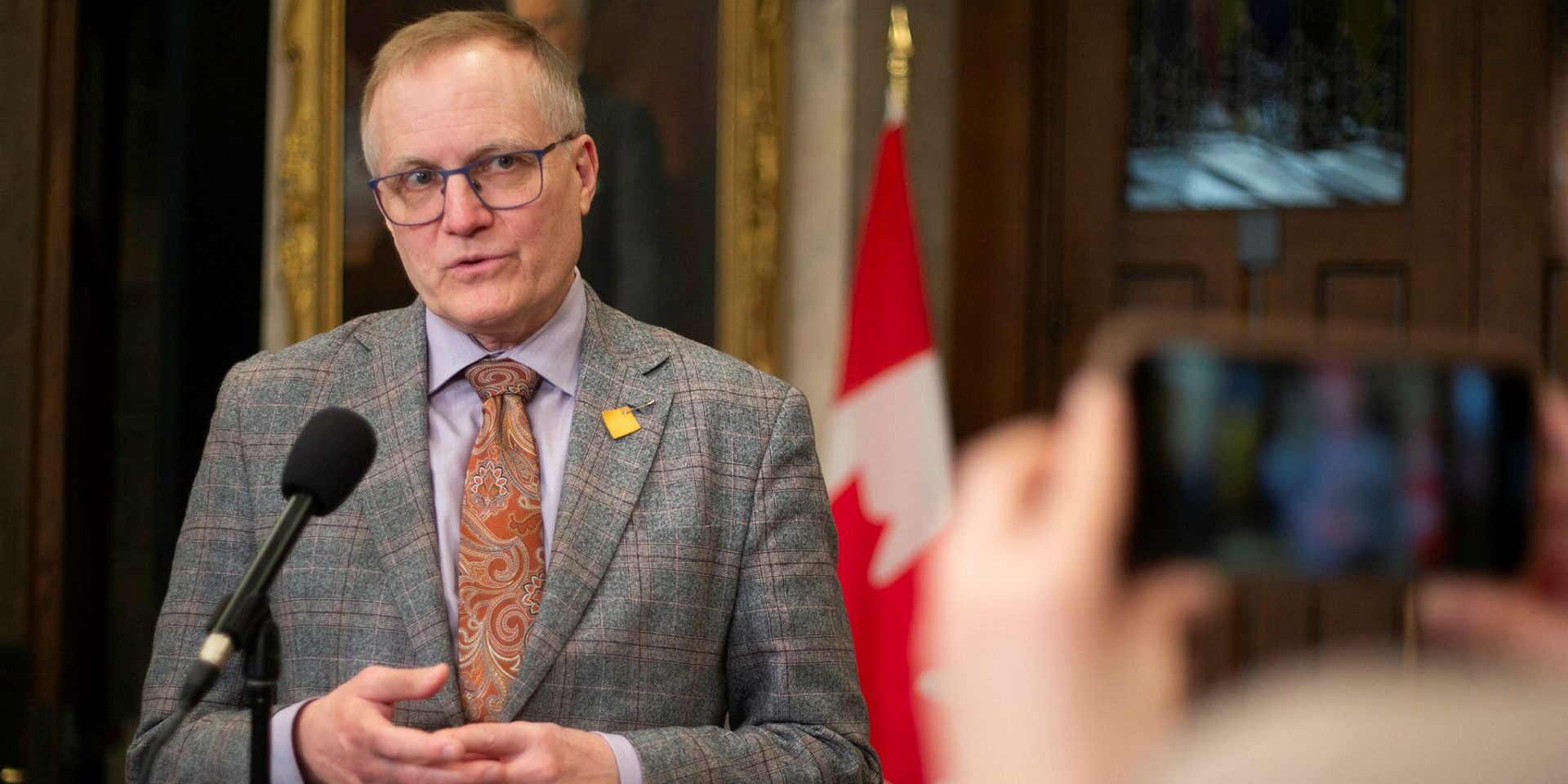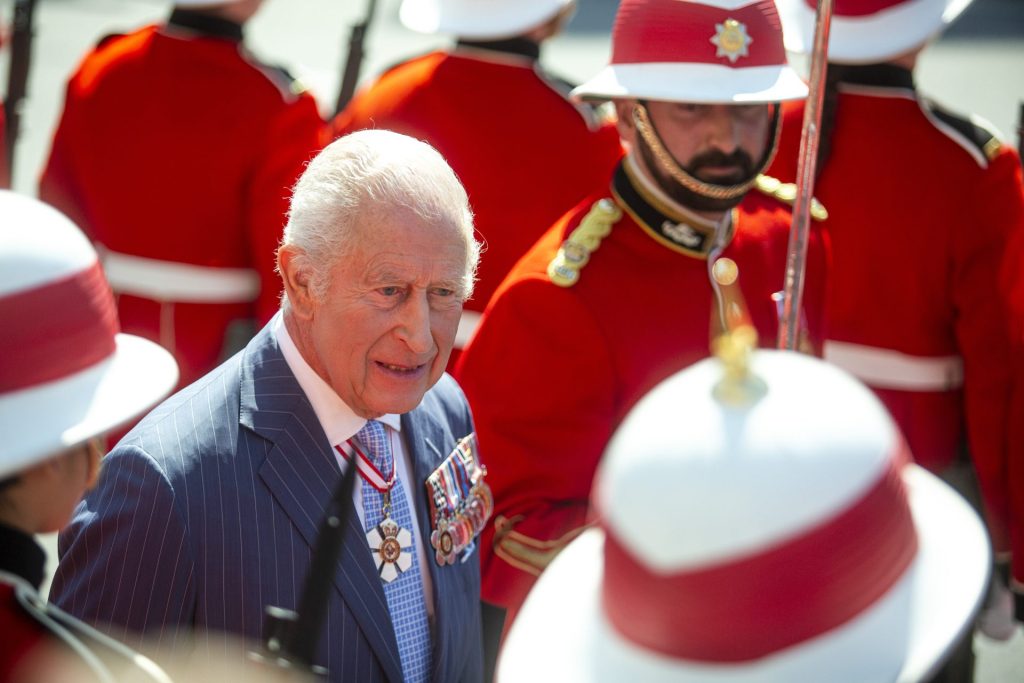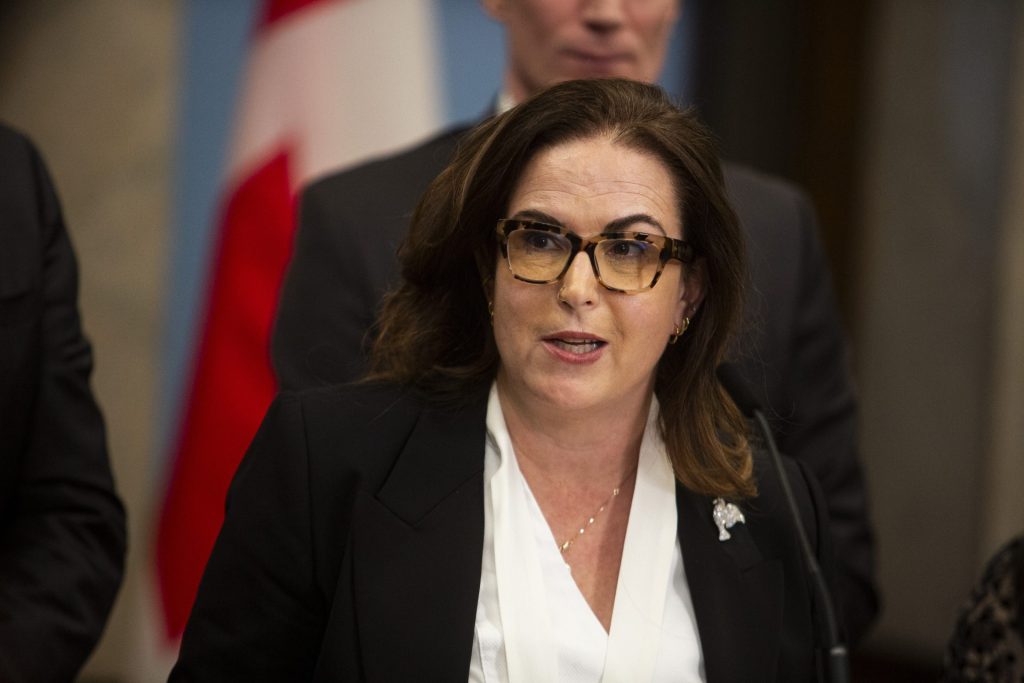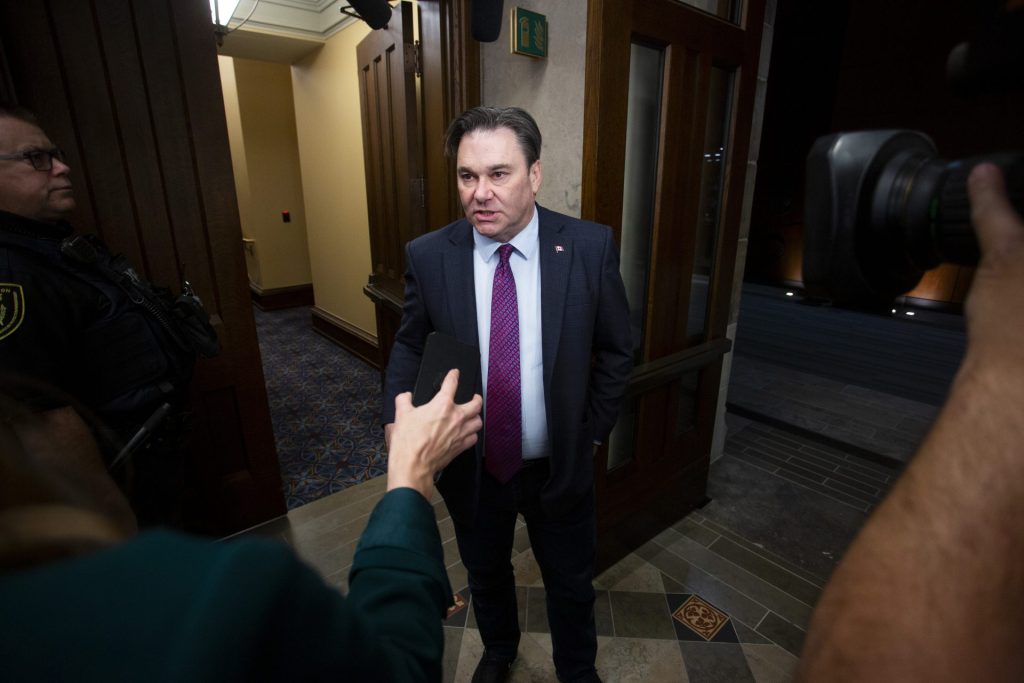Former NDP MP Julian raises alarm over future of pharmacare program

Former long-serving NDP MP Peter Julian, who was defeated in last month’s federal election, says the future of the universal pharmacare program is in jeopardy given the “very clear signalling” on the government’s priorities laid out in the Speech from the Throne.
In a May 29 panel held two days after the historic speech delivered in the Senate by King Charles III, the former British Columbia politician noted the speech only signalled maintaining the current national pharmacare program, which was pushed by the NDP as a part of its supply-and-confidence deal with the Liberals under then-prime minister Justin Trudeau last Parliament.
The speech says “the government will protect the programs that are already saving families thousands of dollars every year,” including childcare and pharmacare, and “in addition to these, the government has recently expanded the Canadian Dental Care Plan to cover about eight million Canadians, saving the average person more than $800 per year.”

Julian said the national pharmacare program, in its current state, was only meant to be the initial step to universal coverage for prescriptions.
“What exists now was only the first step in pharmacare, and that covers diabetes, medication and devices, and covers contraception,” said Julian, speaking at the virtual event hosted by the Pearson Centre for Progressive Policy, alongside co-panellists former Liberal MP Ya’ara Saks, and former Conservative MP Karen Vecchio. Saks, who was first elected in 2020, was a former federal minister in former prime minister Justin Trudeau’s government, but lost her York Centre, Ont., seat the election to Conservative Roman Baber. Saks lost by 5,792 votes. Vecchio, who had represented Elgin-Middlesex-London, Ont., since 2015, did not run again.
Julian said the program can save hundreds of lives per year for diabetic Canadians who can’t afford their prescriptions, and Prime Minister Mark Carney’s (Nepean, Ont.) government can save many more if it expands the program.
“There are many, many more, more Canadians that die because they can’t afford to access heart medication and other medications that are essential for life,” added Julian, a one-time NDP leadership hopeful who was an MP from 2004 until losing his seat in the April 28 election.
“So for Mr. Carney to signal clearly in the Throne Speech that he is not moving forward with the next stage of pharmacare—which would include a whole range of other life-preserving essential medication—I find that profoundly disappointing.”
Julian said there’s “very clear signalling” the governing Liberals won’t expand the pharmacare program. “I find that disturbing and saddening, quite frankly,” said Julian, who narrowly lost his re-election bid in New Westminster-Burnaby-Maillardville, B.C., by fewer than 2,000 votes to Liberal Jake Sawatzky.
“This is where we really hit the road in terms of the Throne Speech,” Julian said. “If we’re not moving ahead with pharmacare, we know ultimately that is sentencing a few hundred Canadians over the next year to death because they won’t be able to afford their medication, and they will die as a result. This is the kind of essential element, emergency element, I think the government has to pick up on.”
Bill C-64, which set the path forward for a national pharmacare program, gives the health minister the authority to negotiate bilateral funding only for “specific prescription drugs and related products intended for contraception or the treatment of diabetes.” The bill states that the government will undergo the work described in the bill “with the aim of continuing to work toward the implementation of national universal pharmacare.”
At a press conference in Ottawa on Feb. 29, 2024, following the introduction of Bill C-64, then-health minister Mark Holland said that pharmacare as defined by the bill would be a “proof-of-concept opportunity” to try out the two classes of medicines on a universal model and that the government would have the “opportunity to evaluate the effectiveness of that model.”
After the pharmacare legislation was passed in October 2024, Trudeau’s government signed bilateral agreements for funding with Manitoba, British Columbia, and Prince Edward Island. Just before the election, Yukon signed not long after Carney took the helm as Liberal leader.

Saks, a former minister of mental health and addictions, and associate health minister, said her philosophy is that good social policy drives good economic policy.
“Carney has said many times: we’re investing in Canadians,” she said. “So spend less, invest more.”
She added, “the foundational work is there,” for pharmacare, childcare, and more. “Those things are in place and they’re not being taken away.”
Saks acknowledged Julian and the NDP’s hard work on “getting those pieces rolling.”
“It is the beginning, and certainly not the end,” adding some Canadians may be worried these programs may be cut, but “they’re firmly in place.”
She said the provinces also need to “assume their role in a deeper way,” citing the bilateral agreement with the provinces, which includes $200-billion in funding set to be doled out over 10 years.
“And this is where we get to step up together because the foundation has been set,” she said.
Interim NDP leader Don Davies (Vancouver Kingsway, B.C.) criticized the Throne Speech’s lack of mentioning health care, among other issues.
“How could you have a Canadian Throne Speech that fails to even use the word health care?” he said.

With Parliament’s return, Government House Leader Steven MacKinnon (Gatineau, Que.) said the NDP won’t be granted official party status, as the Parliament of Canada Act states a party needs to have 12 seats in the House of Commons. The NDP won just seven seats in the April 28 election, compared to the 24 it held when Parliament was dissolved pre-election, meaning the likelihood of a push for progressive legislation, as seen during the Trudeau years, is not high.
Julian added the Throne Speech signalled other austerity measures and emphasized fiscal discipline, something that indicates a “concerning” tack to the right, he said.

“It was very similar to speeches from other governments,” Julian said. Aside from references to supporting the CBC, “Stephen Harper would have been very comfy giving the speech,” Julian said, calling a number of elements of the speech that referenced austerity measures concerning.
The Throne Speech referenced cutting revenue in the form of a middle-class income tax reduction, as well as lowering government spending, which Carney said has been growing at an unsustainable rate of eight per cent each year. He’s pledged to keep that below a two per cent rate of growth.
The speech, which Julian says functions as the government’s statement of intent for the new session of Parliament, signified a conservative shift—“and I don’t think that is what Canadians voted for.”
He noted all Canadians would agree that “the most important imperative” is pushing back against the agenda from south of the border. Carney invited the King to deliver the speech in order to assert Canada’s sovereignty as a constitutional monarchy and part of the British Commonwealth.
Following the Throne Speech, United States President Donald Trump has renewed his threats of making Canada a 51st state.
Responding to the speech during debate in the House of Commons, Conservative House Leader Andrew Scheer (Regina-Qu’Appelle, Sask.) said it “effectively admitted that it was their policies that caused the suffering for Canadians,” by “reckless borrowing and massive deficits” causing inflation.
There’s a total of six days scheduled for MPs to respond to the speech in the House of Commons, with the final vote coming on June 4. The government is only expected to sit for four weeks, adjourning for the summer on June 20.
mglass@hilltimes.com
The Hill Times






 LICENSING
LICENSING PODCAST
PODCAST ALERTS
ALERTS













